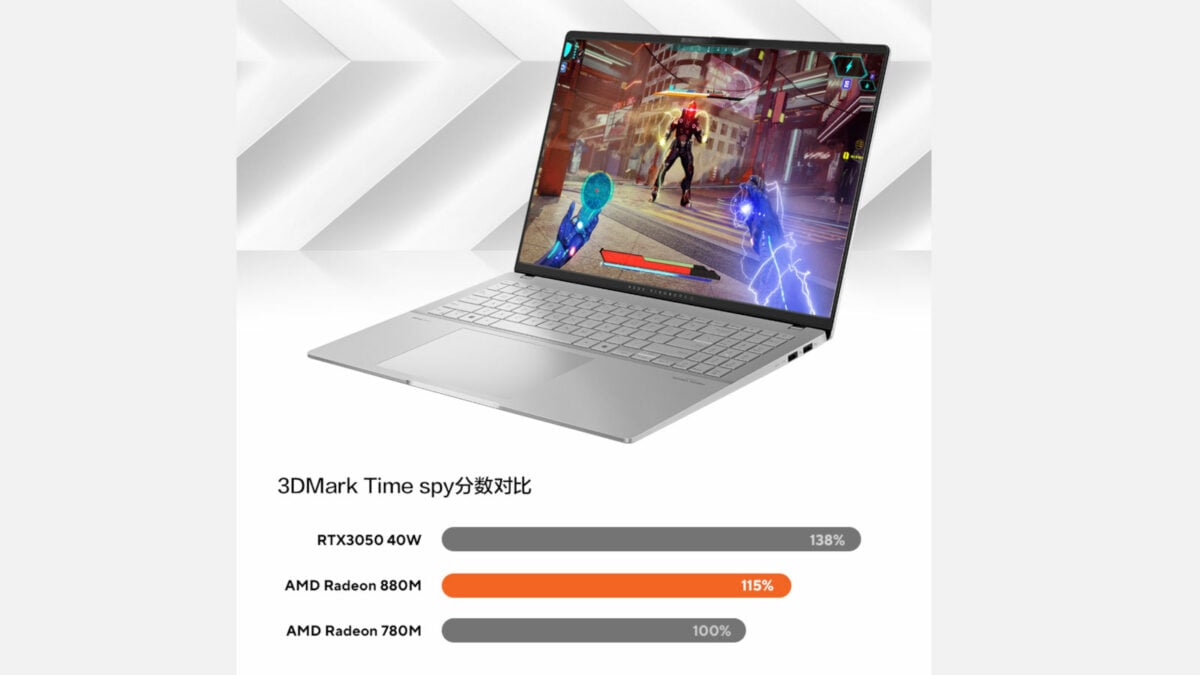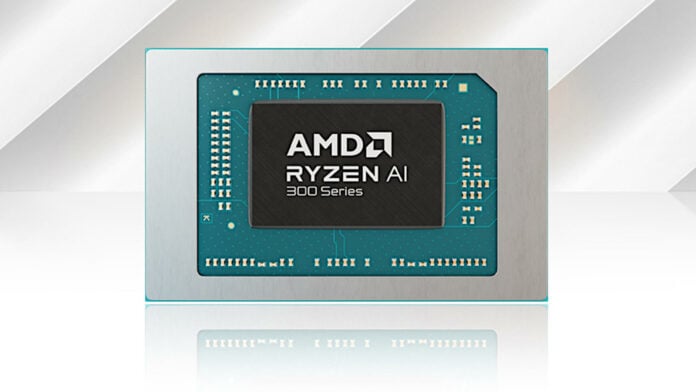New Ryzen AI 300 series laptops will hit the market in the coming weeks, complete with new Radeon integrated graphics. These chips, with their Zen 5 CPU cores and RDNA 3.5 GPU will naturally eclipse their 7000/8000 series predecessors in terms of performance. Now, thanks to Asus, we have a clearer picture of how much faster every iGPU on these processors will be.
AMD hopes to continue its domination of the mobile space, with Ryzen AI 300 series chips that not only serve as the best CPUs but also deliver the highest performing integrated graphics. The company has dished plenty on its prime Ryzen AI 9 HX 370 processor complete with Radeon 890M iGPU, but has said comparatively little about Ryzen AI 9 365 and Radeon 880M. This air of mystery, however, is now seemingly dispelled.

Ahead of the launch of its Ryzen AI 300 series laptop lineup, Asus China has shared promotional materials containing benchmark data for Radeon 880M (via Videocardz). In one screenshot, the company claims the iGPU is 15% faster relative to its predecessor, 780M.
Without exact frame rate data to pull from, it’s difficult to know how much of an improvement this is in real terms. However, an average 15% uplift is certainly nothing to sneer at and bodes well for the more powerful 890M with its increased compute unit count.
Interested as I am in putting 880M and 890M iGPUs to the test in laptops, I can’t wait to see the RDNA 3.5 architecture at play in handhelds, such as Steam Deck 2. The performance uplift from Steam Deck would be enormous, given Valve’s handheld still uses RDNA 2 graphics, but I certainly wouldn’t be too picky with my choice of device.
While you wait for the official word on Ryzen AI 300 series from Club386, check out our breakdown of everything you need to know about AMD’s Zen 5 architecture.

